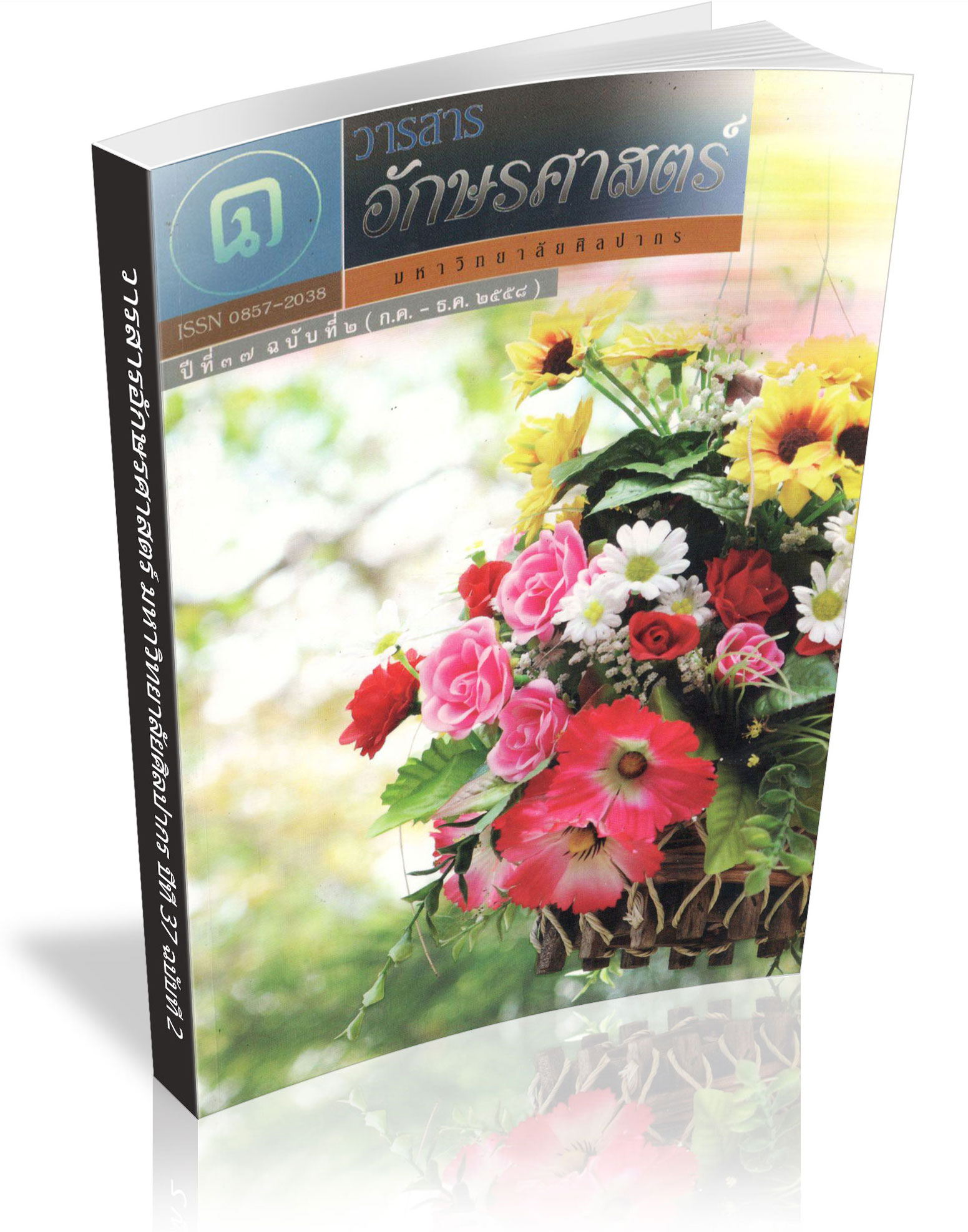Basic Emotion Words Derived from Physiological Effects in Thai
Keywords:
emotion word, lexicalization, meaning extension, internalized languageAbstract
Emotion words originated from physiological effects have certain interesting associations with lexicalization and meaning extension. There are 4 objectives in this article : 1) to analyze the linguistic components and structures of basic emotion words in Thai, 2) to classify the types of emotion expressed by those basic emotion words, 3) to examine lexicalization of those words, and 4) to investigate their meaning extension. Data were collected from the 2011 Royal Institute Dictionary and survey questionnaires given to 200 Thai speakers. The results reveal that there are 195 basic emotion words in Thai. Which can be divided into 2 elements : main and subordinate, and into 2 structures : single and mixed structures. According to the prototype theory, the classification of basic emotion words that words such as “ต้องใจ" "ชื่นใจ" "น้ำตาตกใน” "เสียวสันหลัง” and "เลือดพล่าน" are prototypical words that display AFFECTION, LOVE, HAPPINESS, SORROW, FEAR, and ANGER, respectively. Moreover, it is found that there are 7 ways of lexicalization of these basic emotion words : compounding, semanticreduplication, simple reduplication, sound modification, clipping and ellipsis, idiomatization and hybridization of these categories. As for the meaning extension, there is the internalization of language, which is a method of creating meanings by turning the concrete language into an abstract one by means of metonymy and metaphor.
Downloads
References
ธนพล เอกพจน์. “อุปลักษณ์ความทุกข์ในภาษาไทย” วิทยานิพนธ์ศิลปศาสตรมหาบัณฑิต สาขาวิชาภาษาไทย บัณฑิตวิทยาลัย มหาวิทยาลัยขอนแก่น, ๒๕๕๘.
นวรัตน์ เลิศสกุณี และคณะ. “การวิเคราะห์อุปลักษณ์ความรักในบทเพลงของมารายแครี่ เพื่อศึกษาภาพสะท้อนทางด้านสังคมและวัฒนธรรม” สารนิพนธ์ศิลปศาสตรมหาบัณฑิต มหาวิทยาลัยนเรศวร, ๒๕๕๐.
Brinton, L. J. and Traugott, E. C. Lexicalization and Language Change. Cambridge : Cambridge University Press, 2005.
Evans, V. “Lexical concepts, cognitive models and meaning-construction” Cognitive Linguistics. Walter de Gruyter, 2006.
Evans, V. and Green, M. Cognitive Linguistics : An Introduction. Edindurgh : Edindurgh University Press, 2006.
Downloads
Published
How to Cite
Issue
Section
License
ผู้เขียนบทความต้องยินยอมในข้อกำหนดต่าง ๆ ของวารสารก่อนส่งบทความตีพิมพ์



